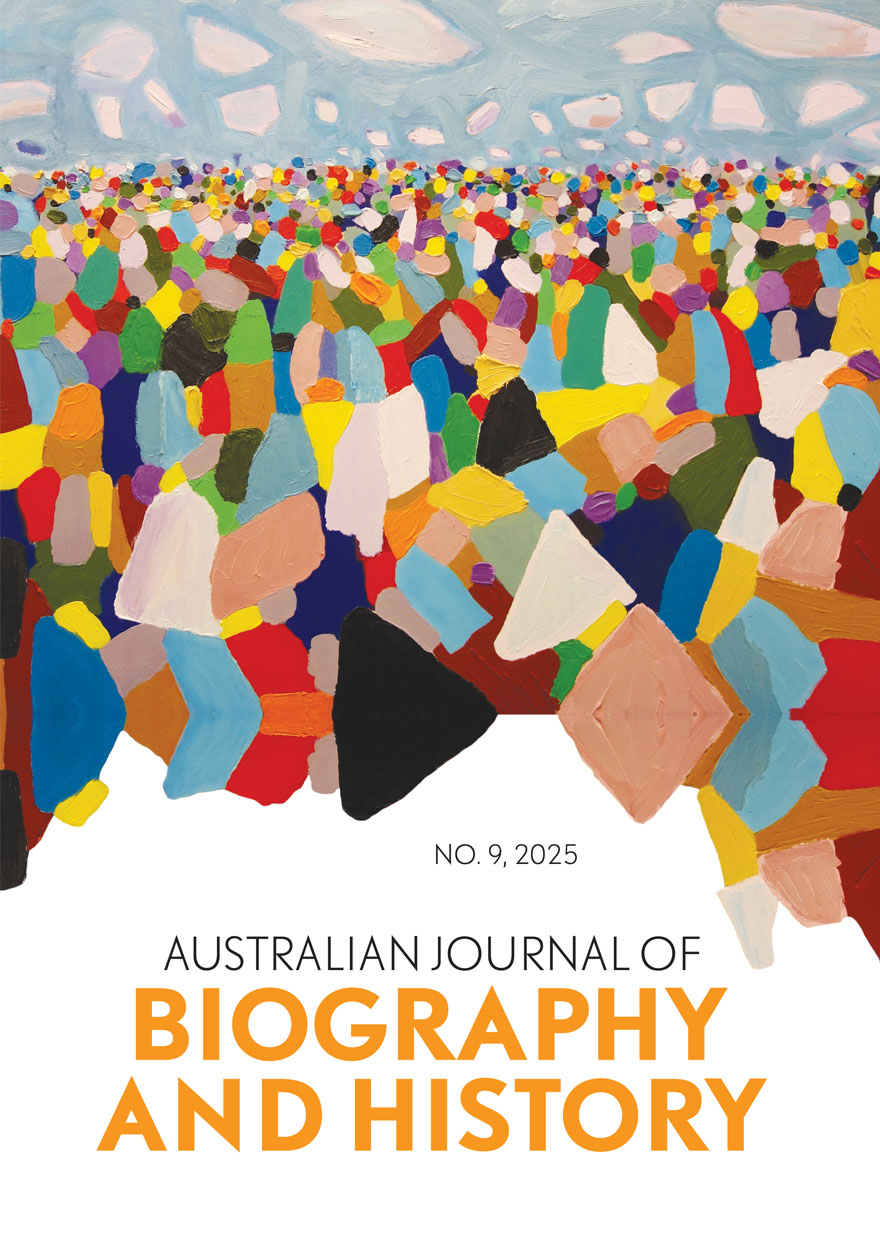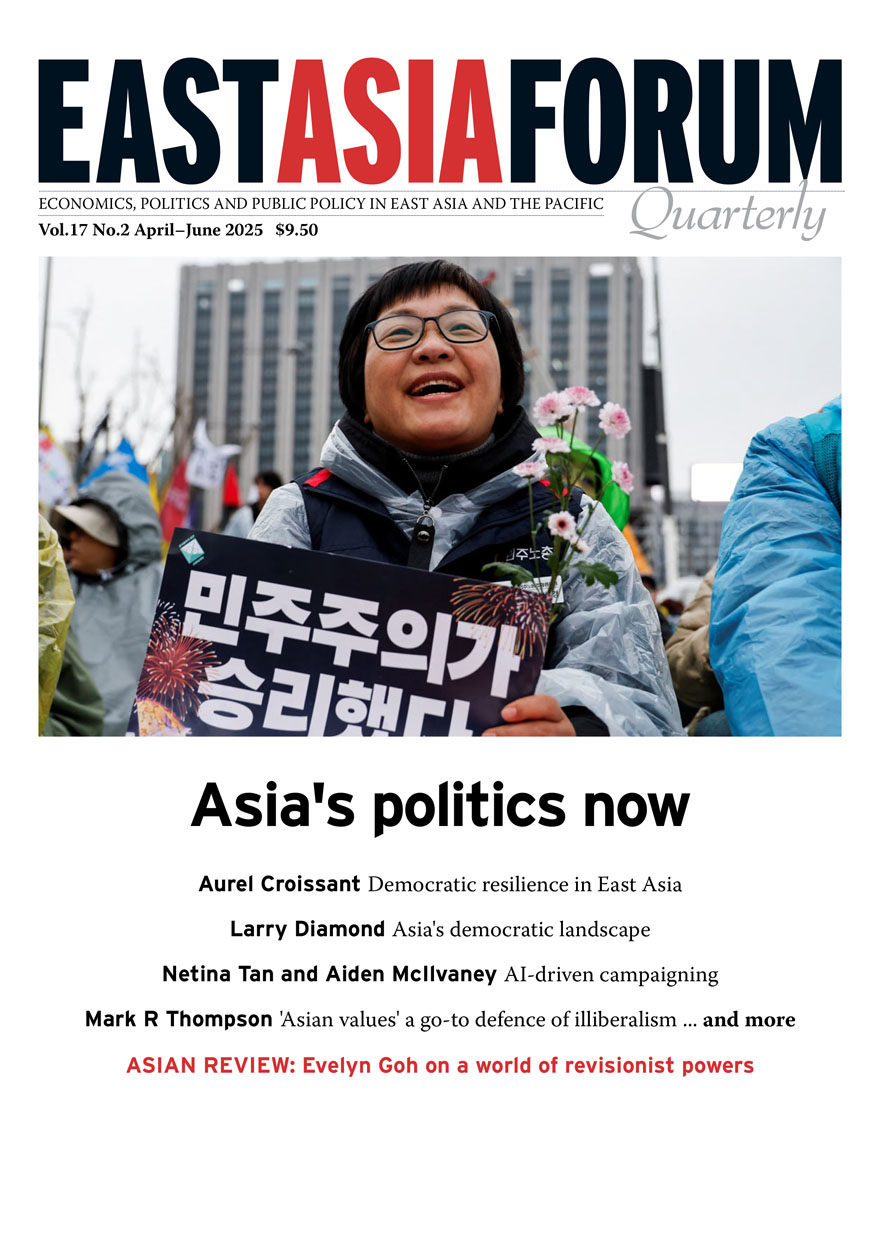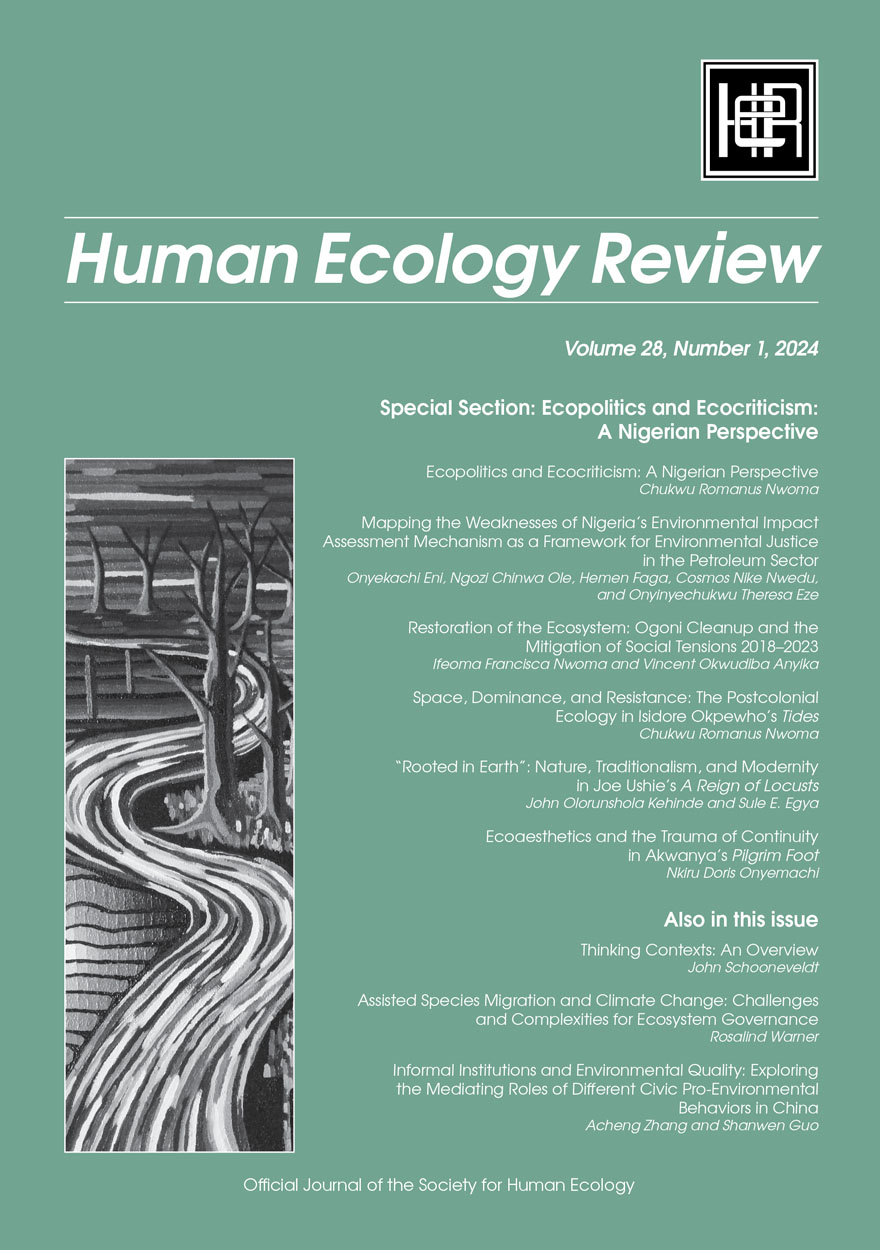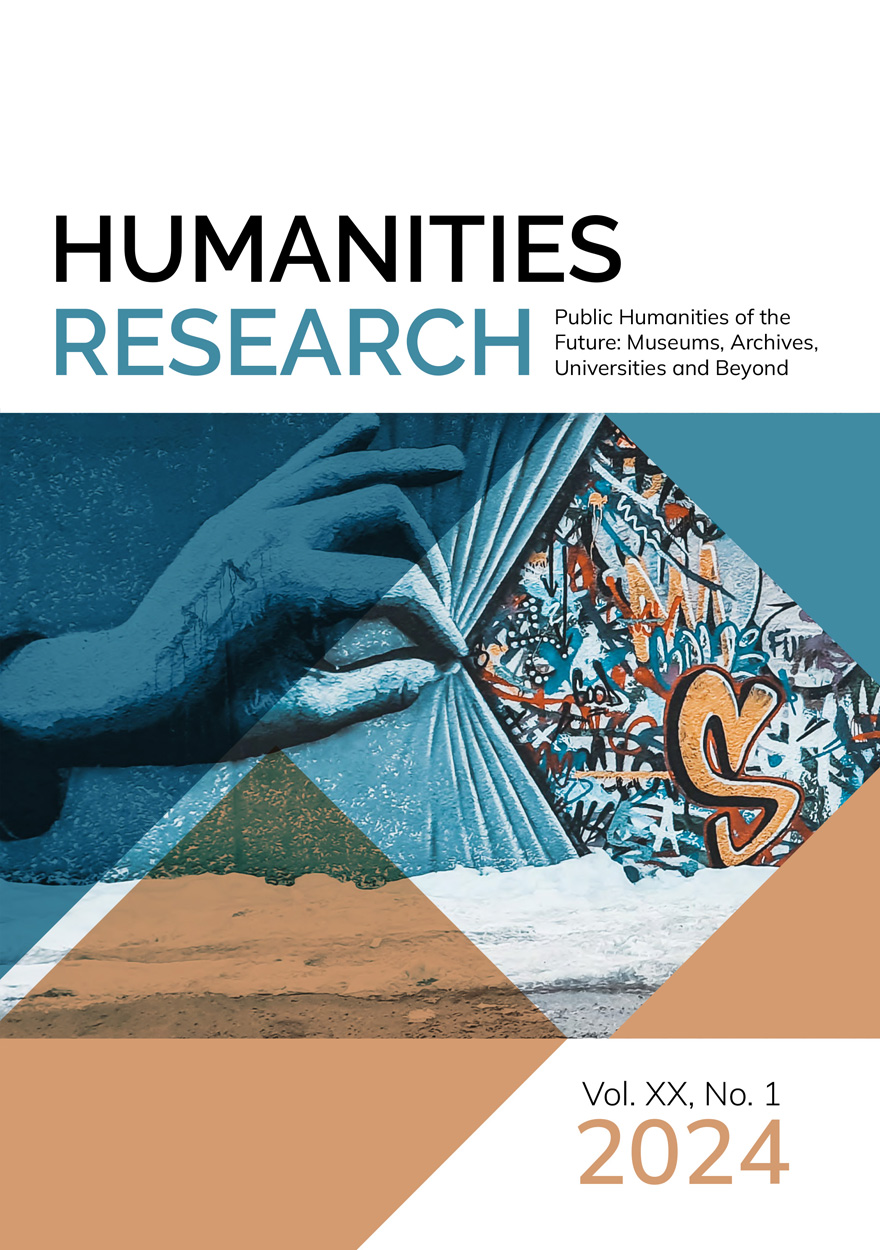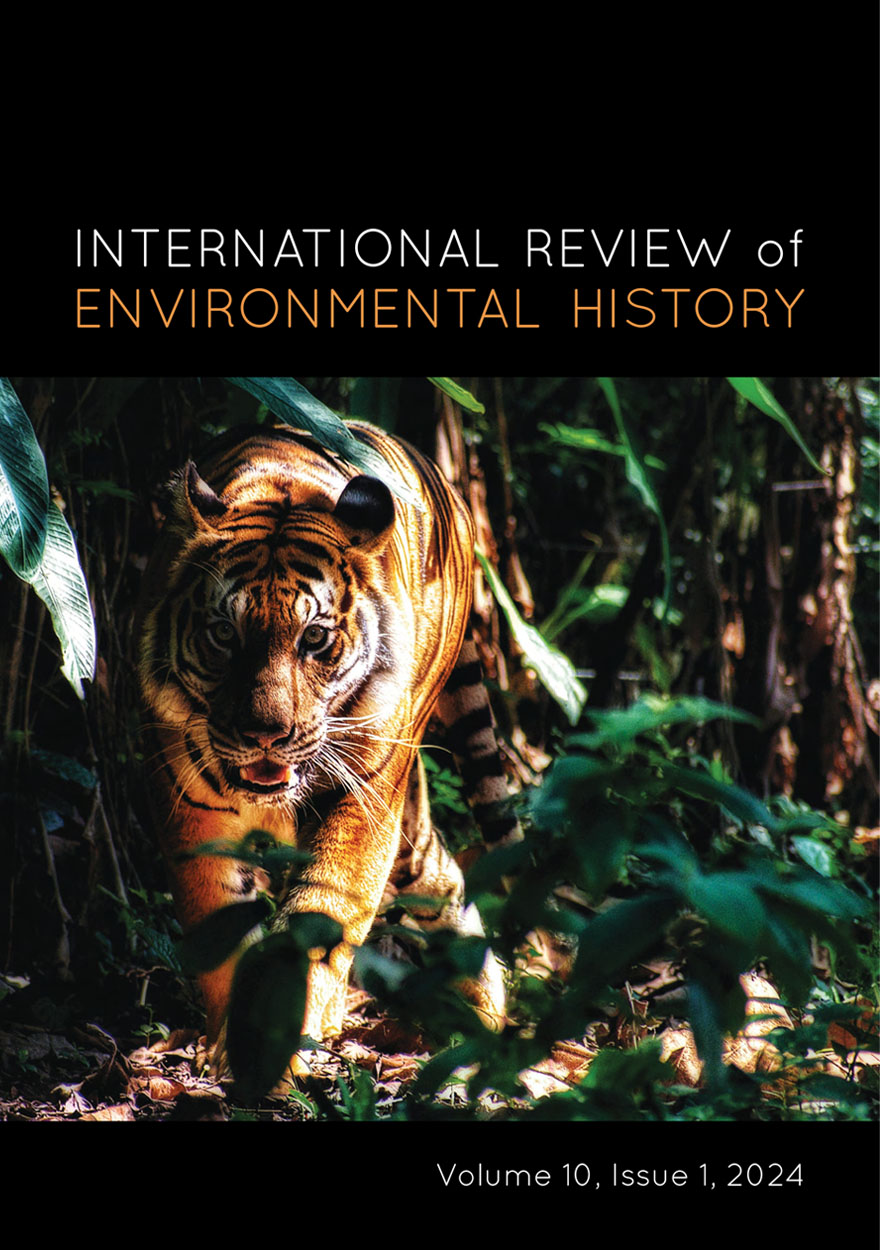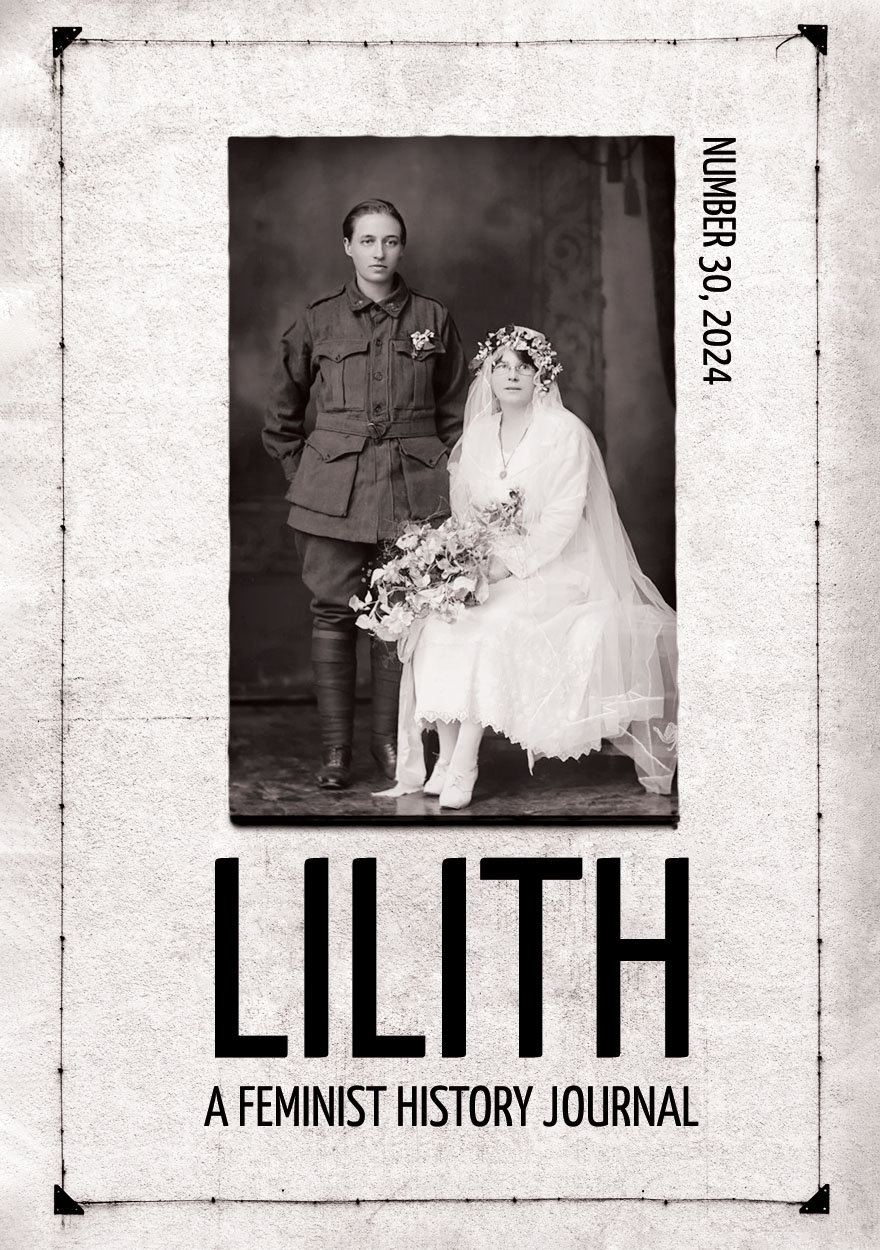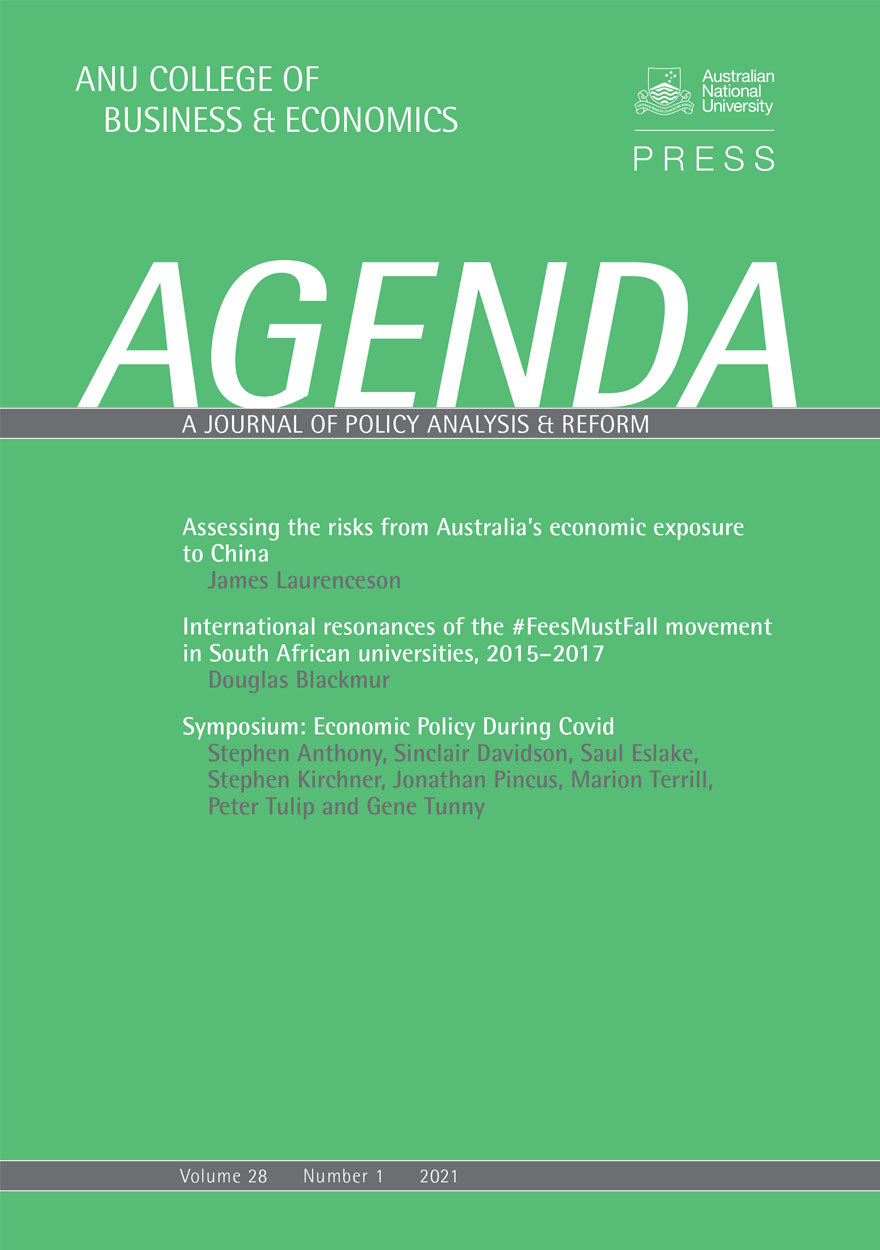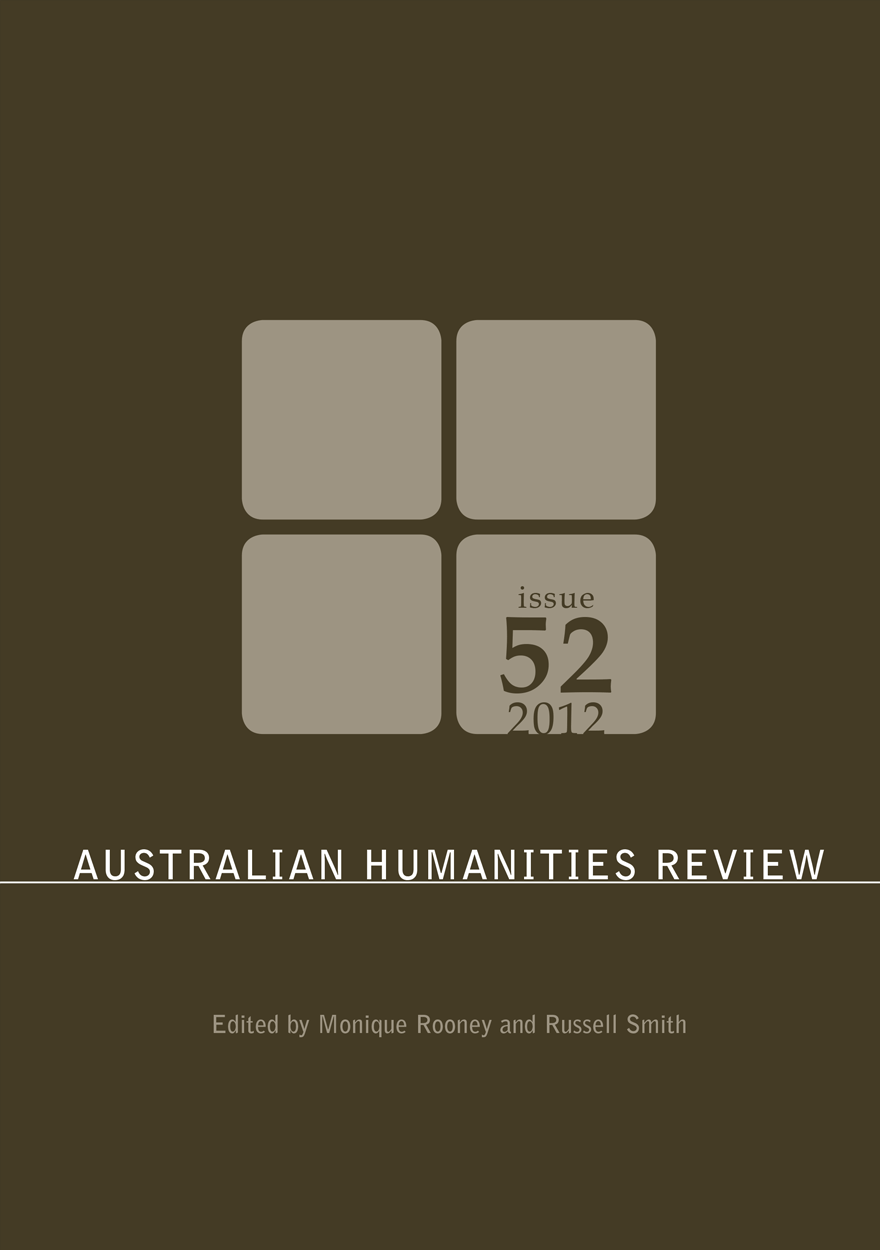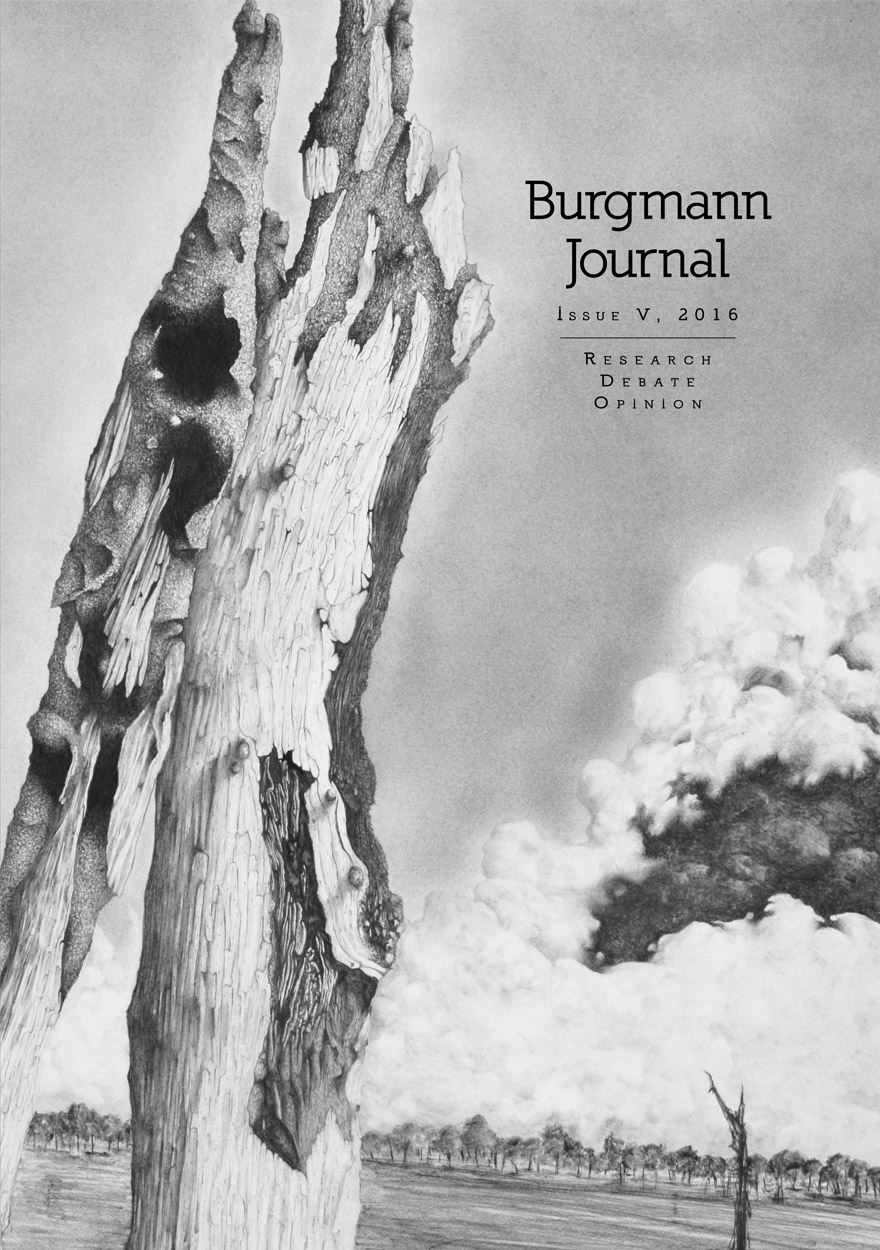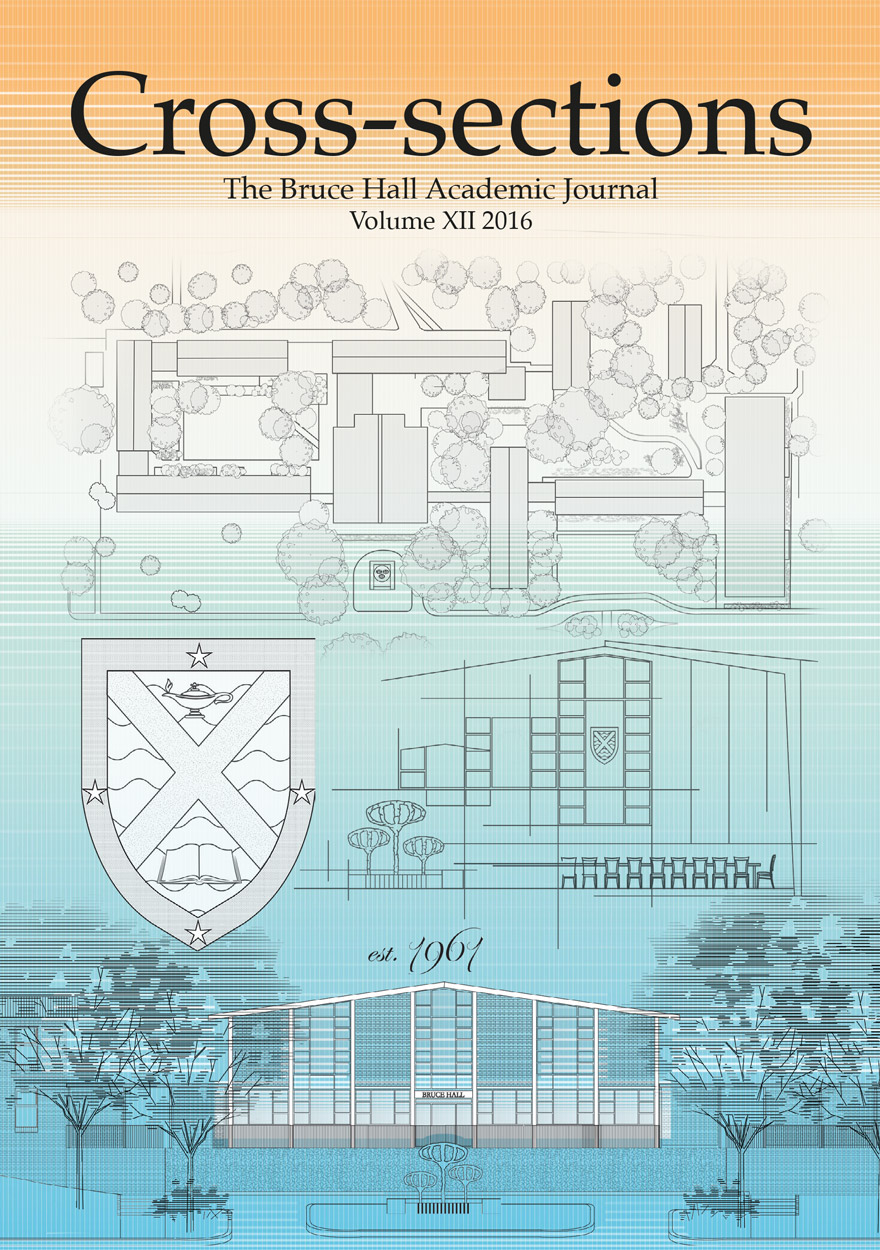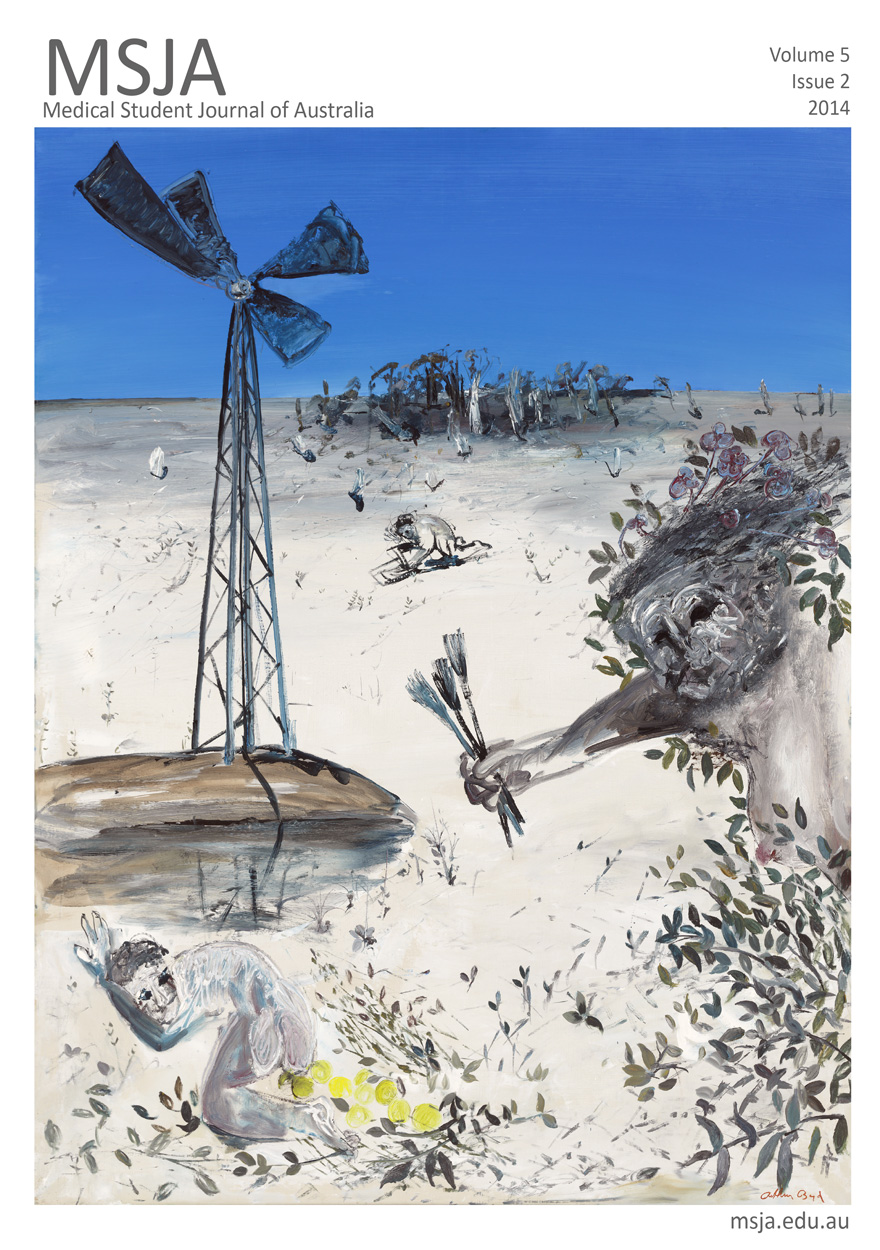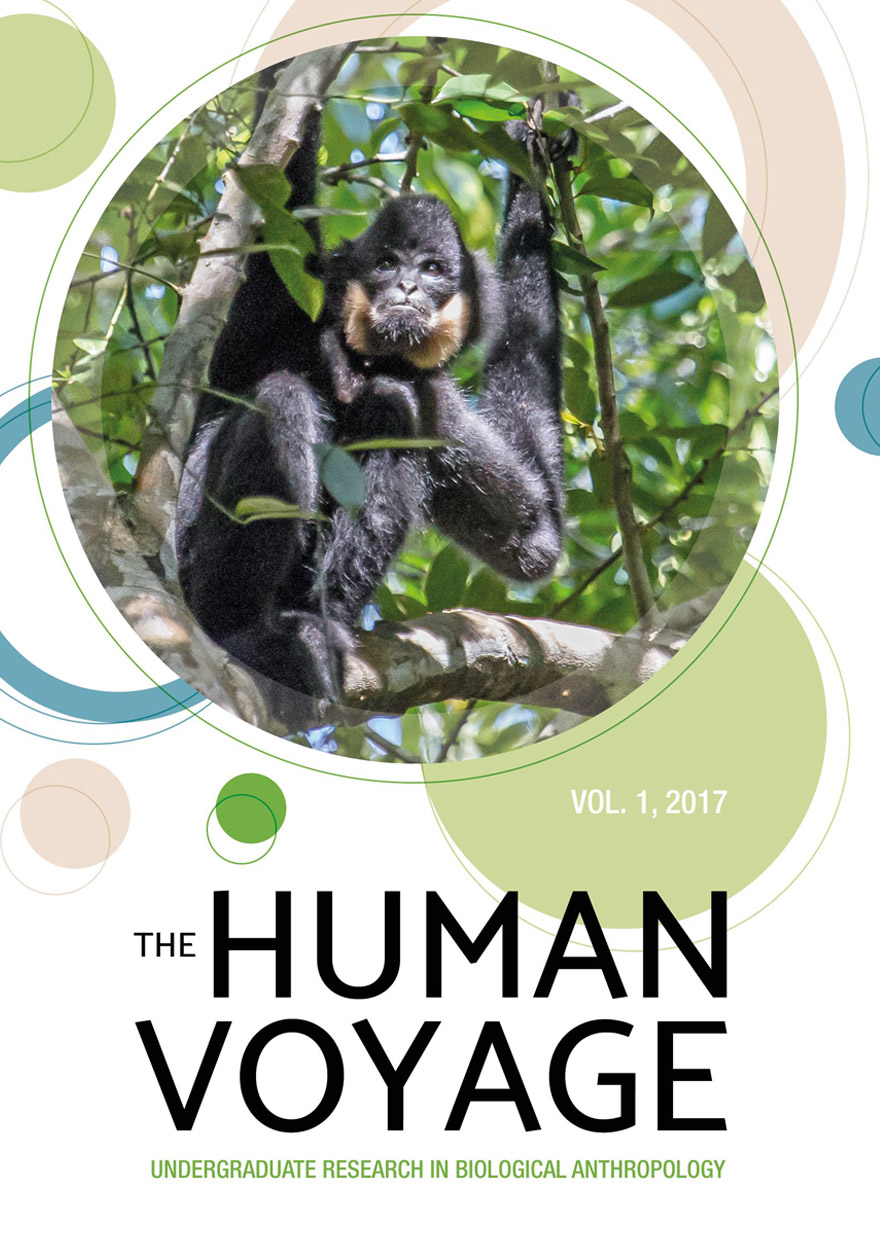Journals
Browse or search a variety of academic journals maintained by ANU Press, or find out more about the journal authors. Download the book for free or buy a print-on-demand copy.
O.H.K. Spate »
Oskar Spate (1911- 2000) was born and educated in England where he completed a doctorate at the University of Cambridge in 1937 on the development of London. After the Second World War he combined lecturing in England with writing a regional geography of the Indian sub-continent.
In 1951 he took up the post of Foundation Professor of Geography in the Research School of Pacific Studies at The Australian National University, a position he held until 1967. From 1967 to 1972 he was Director of the Research School of Pacific Studies, ANU, and in 1972 moved to its Department of Pacific History.
Throughout his career, Oskar Spate published a wide diversity of papers and essays on such subjects as the geography of Europe, South Asia and Australia and the exploration of Australia and the Pacific. Upon his retirement in 1976, he devoted most of his energies to researching and writing his three-volume history The Pacific since Magellan.
Peter Chen »
Peter Chen is a Senior Lecturer in the Department of Government and International Relations, University of Sydney.
Christine Stewart »
Christine Stewart graduated BA (Hons I) from Sydney University in 1966, where she studied Indonesian & Malayan Studies and Anthropology. She first came to PNG in 1968, and gained an LLB from the University of Papua New Guinea in 1976. She has worked in the Papua New Guinea Law Reform Commission, drafting legislation including the original drafts for management of domestic violence, and the Department of Justice and Attorney-General. She spend more than two years in Nauru, drafting legislation there, and subsequently took up consultancy work, the main feature of which was the drafting of the PNG HIV/AIDS Management and Prevention Act 2003 (the ‘HAMP Act’) and work on environment management. She was awarded her PhD from ANU in July 2012 for her thesis ‘Pamuk na Poofta: criminalising consensual sex in Papua New Guinea’, just as her first major publication, the volume Engendering Violence in Papua New Guinea, co-edited with Margaret Jolly and published by ANU Press, was launched.
Yasmine Musharbash »
Yasmine Musharbash has been undertaking research with Warlpiri people at Yuendumu and in wider central Australia since the mid-1990s. She has an MA from Freie Universität Berlin (1997) and a PhD (2003) from The Australian National University. From 2004 to 2008, she was a postdoctoral research fellow at the University of Western Australia and now is a lecturer in the Anthropology Department at the University of Sydney. She is the author of Yuendumu Everyday. Contemporary Life in Remote Aboriginal Australia (Aboriginal Studies Press, 2009) and co-editor of Mortality, Mourning, and Mortuary Practices in Indigenous Australia (with K. Glaskin, M. Tonkinson and V. Burbank, Ashgate, 2008) and You’ve Got to be Joking! Anthropological Perspectives on Humour and Laughter (with J. Carty, Anthropological Forum Special Issue, 2008).
Milton Cameron »
Dr. Milton Cameron is a Canberra-based writer, heritage consultant and artist. A former practising architect, he has designed buildings in Australia, England and New Zealand, and has lectured at the University of Canberra. Milton has been admitted to the degrees of Doctor of Philosophy (Architecture), University of New South Wales, Master of Philosophy (Visual Arts), The Australian National University, and Bachelor of Architecture, University of Auckland. He is currently a Visiting Fellow at the Fenner School of Environment and Society, The Australian National University College of Medicine, Biology and Environment.
Daniel Oakman »
Daniel Oakman is a Senior Curator at the National Museum of Australia. He has published widely on post-1945 Australia, the transnational experience of international scholars and the history of overseas aid. He is currently researching a biography of the cyclist and politician Sir Hubert Opperman and the history of competitive cycling in Australia.
John Power »
After completing his first degree in political science in the University of Melbourne, John Power undertook graduate studies at Harvard University. He then took up teaching positions at the University of Sydney and the Canberra College of Advanced Education, before returning to the University of Melbourne in 1977. Upon his transfer to The Australian National University in 1993 to set up the Australian National Internships Program, he was made a Professor Emeritus of his first University.
He has published widely on local, state and commonwealth executive and legislative branches. His current central concern is to do with the governance roles that heads of state could perform in an Australian republic.
Daryl Tarte »
Daryl Tarte is the fourth generation of his family to live in Fiji. After education in Melbourne, he worked for a number of years on the family estates on Taveuni. He became an executive in the Fiji sugar industry in 1968 before retiring in 1999 to devote more time to travel, corporate activities and writing. He has contributed to many Fijian magazines and is author of three historical novels about the Pacific, one biography of the late President of Fiji, one coffee table book about Fiji and co-editor of 20th Century Fiji: People Who Shaped the Nation.
Daryl has been happily married to Jacqueline for 57 years. They live in Suva and spend as much time as possible with the fifth and sixth generations of the family. He is an avid golfer and gardener.
Penelope Mathew »
Penelope Mathew holds the Freilich Foundation Chair. Her primary research interests are international law, human rights law, refugee law and feminist theory.
Prior to her appointment at the Freilich Foundation, Professor Mathew was a visiting professor and interim Director of the Program in Refugee and Asylum Law at the University of Michigan Law School, where she convened the 5th Michigan Colloquium on Challenges in International Refugee Law. From 2006 – 2008, she was a legal adviser to the ACT Human Rights Commission, where she conducted the Human Rights audit of the ACT’s Correctional Facilities. Professor Mathew has also taught at ANU College of Law and Melbourne Law School, and she is a past editor-in-chief of the Australian Yearbook of International Law.
Prof. Mathew’s career has been devoted to human rights, particularly the rights of refugees. In 2001, Prof. Mathew advised the UN High Commissioner for Refugees’ regional office for Australia, New Zealand, Papua New Guinea and the South Pacific concerning the problems with Australian legislation underpinning the so-called ‘Pacific Solution’. She was also a participant in the third expert panel on refugee law organised by UNHCR during 2001 as part of the ‘global consultations’ on the 1951 Convention relating to the Status of Refugees. She has written numerous submissions to parliamentary inquiries, particularly those relating to changes to Australia’s immigration laws and their impact on refugees and asylum-seekers. Her evidence to the Australian Senate’s Legal and Constitutional Committee concerning the Migration Amendment (Designated Unauthorised Arrivals) Bill 2006, a bill which sought to extend aspects of the Pacific Solution, was cited extensively by the Committee when it recommended that the bill should not become law. Prof. Mathew has also provided academic opinions to lawyers working on refugee cases before Australian courts, including the test cases for East Timorese asylum-seekers. She is a non-judicial member of the International Association of Refugee Law Judges and a member of its human rights working group. She was one of the faculty members, along with Professor James Hathaway and Rodger Haines QC, for the advanced refugee law workshop organised by the International Association of Refugee Law Judges in Auckland, New Zealand, in 2002. During the 1990s she worked in a variety of capacities with the Jesuit Refugee Service and the Victorian Refugee Advice and Casework Service (now the Refugee and Immigration Legal Centre). In 2008, she was presented with an International Women’s Day award by the ACT government for her outstanding contribution to human rights and social justice.
Martin Slama »
Martin Slama is a postdoctoral researcher at the Institute for Social Anthropology, Austrian Academy of Sciences. He has conducted extensive fieldwork in Indonesia (Java, Bali, Sulawesi, the Moluccas, West Papua) and was guest researcher at The Australian National University in Canberra, State Islamic University Syarif Hidayatullah in Jakarta and Gajah Mada University in Yogyakarta. His main research topics include the Hadhrami diaspora, Islam in Indonesia, and the uses of social media and mobile communication technologies in Southeast Asian contexts. Recent publications: ‘Marriage as Crisis: Revisiting a Major Dispute among Hadhramis in Indonesia’, in Cambridge Anthropology 32 (2) (2014); ‘From Wali Songo to Wali Pitu: The Travelling of Islamic Saint Veneration to Bali’, in Between Harmony and Discrimination: Negotiating Religious Identities within Majority-Minority Relationships in Bali and Lombok, B. Hauser-Schäublin and D. Harnish (eds) (2014); ‘Hadhrami Moderns: Recurrent Dynamics as Historical Rhymes of Indonesia’s Reformist Islamic Organization Al-Irsyad’, in Dynamics of Religion in Southeast Asia: Magic and Modernity, V. Gottowik (ed.) (2014).
Jenny Munro »
Jenny Munro is a research fellow in the State, Society and Governance in Melanesia Program at The Australian National University. She is a cultural anthropologist who works in Papua and other regions of eastern Indonesia. Her doctoral research followed a group of indigenous university students from the central highlands of Papua to North Sulawesi and back home again to examine the social, cultural and political impacts of schooling. Since completing her PhD in 2010, Jenny has conducted five collaborative ethnographic research projects in the domains of HIV/AIDS, sexuality, education and alcohol-related violence. Her research reflects a broader interest in understanding emerging and enduring inequalities that are reshaping daily life in Papua. She has published articles on racial stigma and premarital pregnancy experiences (Journal of Youth Studies), the politics of HIV research and policy formation (The Asia Pacific Journal of Anthropology), and indigenous experiences of the value of education in highlands Papua (Indonesia). She is currently writing about HIV, gender and mobility in Papua.
Juliana Ng »
Juliana Ng is Professor of Accounting in the Business School at University of Western Australia. She is currently a member of the editorial board of The International Journal of Accounting. Professor Ng has secured research grants, including funding from the Australia Research Council. Professor Ng is an Adjunct Fellow of ANCAAR.
Vic Lipski »
Vic Lipski is a professional editor and he has undertaken editorial work over several years for the Institute for Governance and Policy Studies at the Victoria University of Wellington, New Zealand.
Justin Pritchard »
Justin Pritchard is an Honours graduate in Middle East Studies and research assistant with the Australia and New Zealand School of Government (ANZSOG) at The Australian National University.
Kuntala Lahiri-Dutt »
Kuntala Lahiri-Dutt is an Associate Professor at the Crawford School of Public Policy, College of Asia and the Pacific, The Australian National University. Kuntala’s research is on the interface of community and gender with the environment and natural resource management in developing countries in the Asia-Pacific region. Kuntala has published widely on resource and related areas. Some of her publications include Dancing with the River: People and Life on the Chars of South Asia (co‑authored, Yale University Press, 2013); The Coal Nation: Histories, Ecologies and Politics of Coal in India (Ashgate, 2014); Gendering the Field: Towards Sustainable Livelihoods for Mining Communities (edited, ANU Press, 2011); and Women Miners in Developing Countries: Pit Women and Others (co-edited, Ashgate, 2006).
Mike Rickard »
Dr Mike Rickard was a staff member of the Department of Geology from 1963 – 1997 and served as Head of Department for seven years. He graduated Bsc and PhD from Imperial College London in 1957 and has specialised in mapping the structure of mountain chains in Ireland, Canada, Norway, and southern South America. He also mapped volcanic rocks for the Geological Survey of Fiji. He taught Structural Geology and Tectonics and has supervised field work in south eastern and central Australia. After retirement he has taught courses in Earth Sciences.
Alf Hagger »
Alf Hagger was an Honorary Research Associate of the School of Economics at the University of Tasmania, and a member of the Academy of Social Sciences in Australia. He wrote 13 books. He was personally acquainted with L.F. Giblin, D.B. Copland and Roland Wilson.
Alf Hagger passed away in October 2010.
Maria Taylor »
Maria Taylor is an award-winning journalist and former documentary film-maker whose work over more than three decades in both Australia and the United States has focused on sustainable resource management and environmental issues. The book builds on research conducted for a PhD (communications) at the National Centre for the Public Awareness of Science of The Australian National University. Her multi-disciplinary investigation of the public record and the input of science, politics, economics, journalism and contemporary mass media has revealed for the first time how and why Australia buried a once good understanding of global warming and climate change — to arrive after 25 years at the confusion and stalemate we are still in today. The book is written for both a general audience and interested scholars. Taylor lives and works in regional NSW near the national capital, where she publishes a monthly community newspaper The District Bulletin.
Paul Wyrwoll »
Paul Wyrwoll is an environmental and energy economist at The Australian National University. His main research focus is management of the environmental impacts of hydropower dams. He also works on climate change mitigation, water security, and biodiversity conservation. Paul is Managing Editor of the Global Water Forum.
David Allendes »
David Allendes is an environmental management professional whose principal focus is the water sector. He holds a Master of Environmental Management and Development and a Master of Diplomacy from The Australian National University. David is an Associate Editor of the Global Water Forum and contributes to the teaching of courses on water resources management at The Australian National University.
Chris White »
Chris White is an environmental economist at URS, London where his main area is working with the public and private sector on valuing the services provided by the environment in order to improve decision making and account for impacts on natural capital. Chris is also a Research Associate at the Centre for Water Economics, Environment and Policy, The Australian National University and Managing Editor of the Global Water Forum.
Heather Keith »
Heather Keith is a Research Fellow at the Fenner School of Environment and Society in the field of forest ecology. Her research encompasses measurement of the carbon cycle, development of methods for carbon accounting, the role of natural forests in the global carbon cycle, and implications for greenhouse science policy.
Brendan Mackey »
Brendan Mackey is a professor of environmental science in the Fenner School of Environment and Society, The Australian National University. His research, teaching and outreach are in the fields of environmental biogeography, ecosystem dynamics, and sustainability. Prof Mackey serves on the Science Advisory Panel to the Australian Government’s Climate Commission. He is a member of the IUCN Council, serves as co-Chair of the Council of Earth Charter International, and is a member of the editorial board of Pacific Conservation Biology. Brendan as published over 120 academic articles including two ANU Press books on “Green Carbon”.
Matthew Gray »
Matthew Gray is Director and Professor at the Centre for Aboriginal Economic Policy Research at The Australian National University, and Director of Research in the College of Arts and Social Science at The Australian National University.
Colin D. Butler »
Professor Colin Butler is based at the University of Canberra, and is also a Visiting Fellow at NCEPH at the ANU. In 1989, he and his late wife, Susan co-founded BODHI (Benevolent Organisation for Development, Health & Insight). In 2014, he co-founded Health-Earth (www.canberra.edu.au/centres/ceraph/H-earth). Colin has published widely, including on health, sustainability, justice, conflict and engaged Buddhism. He was a co-ordinating lead author for the Millennium Ecosystem Assessment. In 2009, he was named one of ‘100 doctors for the planet’ by the French Environmental Health Association. Butler edited Climate Change and Global Health (CABI, 2014). His collaboration with Tony McMichael started in 1993.
ANU Press Journals
Aboriginal History Journal »
Since 1977, the journal Aboriginal History has pioneered interdisciplinary historical studies of Australian Aboriginal people’s and Torres Strait Islander’s interactions with non-Indigenous peoples. It has promoted publication of Indigenous oral traditions, biographies, languages, archival and bibliographic guides, previously unpublished manuscript accounts, critiques of current events, and research and reviews in the fields of anthropology, archaeology, sociology, linguistics, demography, law, geography and cultural, political and economic history.
Aboriginal History Inc. is a publishing organisation based in the Australian Centre for Indigenous History, Research School of Social Sciences, The Australian National University, Canberra.
For more information on Aboriginal History Inc. please visit aboriginalhistory.org.au.
Submission details
Please send article submissions to aboriginal.history@anu.edu.au.
Articles of about 7,000 words in length (including footnotes and references) are preferred, but submissions up to 9,000 words will be considered. Please submit an electronic version of the paper (text only without embedded images or scans) in Microsoft Word or RTF format, along with a short abstract and author biography as a separate document.
ANU Historical Journal II »
The ANU Historical Journal II (ANUHJ II) is an open-access, peer-reviewed academic history journal of the ANU College of Arts and Social Sciences and the ANU College of Asia and the Pacific. It is a revival of the ANU Historical Journal, which was published between 1964 and 1987. Contributors to the first journal included academics such as Ken Inglis, Manning Clark, John Ritchie and Oliver MacDonagh along with then-emerging scholars Iain McCalman, Michael McKernan, Margaret George, Coral Bell, John Iremonger, Alastair Davidson, Susan Magarey and Rosemary Auchmuty. As well as upholding the Journal’s commitment to the work of students and early career researchers, the ANUHJ II has expanded its focus to include memoirs, short articles and long-form book reviews.
The ANUHJ II invites submissions from students, graduates and academics of any Australian university.
For more information about the ANUHJ II, please visit anuhj.com.au
Australian Journal of Biography and History »
The Australian Journal of Biography and History is an initiative of the National Centre of Biography (NCB) in the Research School of Social Sciences at The Australian National University. The NCB was established in 2008 to extend the work of the Australian Dictionary of Biography and to serve as a focus for the study of life writing in Australia, supporting innovative research and writing to the highest standards in the field, nationally and internationally. The Australian Journal of Biography and History seeks to promote the study of biography in Australia. Articles that appear in the journal are lively, engaging and provocative, and are intended to appeal to the current popular and scholarly interest in biography, memoir and autobiography. They recount interesting and telling life stories and engage critically with issues and problems in historiography and life writing.
The journal publishes peer-reviewed articles on Australian historical biography, including biographical studies, studies relating to theory and methodology, and the associated genres of autobiography, life writing, memoir, collective biography and prosopography. We are especially interested in articles that explore the way in which biography and its associated genres can illuminate themes in Australian history, including women in Australian society, family history, transnational networks and mobilities, and Indigenous history.
Submission Details
Please send article submissions or abstracts to the Editor, Dr Malcolm Allbrook, National Centre of Biography, The Australian National University. Email: Malcolm.Allbrook@anu.edu.au. Articles should be in the range of 5,000 to 8,000 words (excluding footnotes), although longer submissions may be considered after consultation with the Editor. Style and referencing: please use footnotes in Chicago style, and follow British spelling.
East Asia Forum Quarterly »
East Asia Forum Quarterly grew out of East Asia Forum (EAF) online, which has developed a reputation for providing a platform for the best in Asian analysis, research and policy comment on the Asia Pacific region in world affairs. EAFQ aims to provide a further window onto research in the leading research institutes in Asia and to provide expert comment on current developments within the region. The East Asia Forum Quarterly, like East Asia Forum online, is an initiative of the East Asia Forum (EAF) and its host organisation, the East Asian Bureau of Economic Research (EABER) in the Crawford School of Public Policy in the ANU College of Asia & the Pacific at The Australian National University.
Submission details
Unsolicited submissions to EAF are welcome. An analytic op-ed piece that is accessible to a general audience and written in crisp language is required. The preferred length of submissions is around 800 words. Submissions will be double-blind reviewed and, if accepted for publication, edited for English fluency and house style before returned for clearance by the author. EAFQ does not use footnotes but would be extremely appreciative if hyperlinks to internet sources are included wherever possible. EAFQ reserves the right to determine the title for any piece, but will not publish a piece or a title without permission. A suggested title is appreciated. If you have any further queries, or would like to submit, please contact shiro.armstrong@anu.edu.au.
Human Ecology Review »
Human Ecology Review is a semi-annual journal that publishes peer-reviewed interdisciplinary research on all aspects of human–environment interactions (Research in Human Ecology). The journal also publishes essays, discussion papers, dialogue, and commentary on special topics relevant to human ecology (Human Ecology Forum), book reviews (Contemporary Human Ecology), and letters, announcements, and other items of interest (Human Ecology Bulletin). Human Ecology Review also publishes an occasional paper series in the Philosophy of Human Ecology and Social–Environmental Sustainability.
Submission details
For information on preparing your manuscript for submission, please visit www.humanecologyreview.org. To submit a manuscript to Human Ecology Review, please visit mstracker.com/submit1.php?jc=her, or email humanecologyreviewjournal@gmail.com.
Humanities Research »
Humanities Research is a peer-reviewed, open access, annual journal that promotes outstanding innovative, interdisciplinary and multidisciplinary scholarship to advance critical knowledge about the human world and society.
The journal is co-published by the Humanities Research Centre, The Australian National University, Canberra. It was launched in 1997 and went into hiatus in 2013. In 2022, the journal is resuming publication, reflecting the continuing strength of the humanities at The Australian National University, the rapid development of the interdisciplinary, environmental and public humanities over the last decade, and the opportunities for international collaboration reflected in the resumption of international travel in 2022.
Issues are thematic with guest editors and address important and timely topics across all branches of the humanities.
International Review of Environmental History »
International Review of Environmental History takes an interdisciplinary and global approach to environmental history. It encourages scholars to think big and to tackle the challenges of writing environmental histories across different methodologies, nations, and time-scales. The journal embraces interdisciplinary, comparative and transnational methods, while still recognising the importance of locality in understanding these global processes.
The journal’s goal is to be read across disciplines, not just within history. It publishes on all thematic and geographic topics of environmental history, but especially encourage articles with perspectives focused on or developed from the southern hemisphere and the ‘global south’.
Submission details
Please send article submissions or abstracts to the Editor, Associate Professor James Beattie, Science in Society, Victoria University of Wellington, PO Box 600, Wellington 6142, New Zealand. Email: james.beattie@vuw.ac.nz.
Abstracts should be no more than 200 words, and include a list of keywords. Articles should be in the range 5,000 to 8,000 words (including footnotes), although longer submissions may be considered after consultation with the editor. Style and referencing: please use footnotes in Chicago Style, follow British spelling, and use single quotation marks only. Find out more details about Chicago Style.
Lilith: A Feminist History Journal »
Lilith: A Feminist History Journal is an annual journal that publishes articles, essays and reviews in all areas of feminist and gender history (not limited to any particular region or time period). In addition to publishing research articles on diverse aspects of gender history, Lilith is also interested in publishing feminist historiographical and methodological essays (which may be shorter in length than typical research articles). Submissions from Australian and international early career researchers and postgraduate students are particularly encouraged.
The journal first began publication in Melbourne in 1984. It is the official journal of the Australian Women’s History Network, an organisation dedicated to promoting research and writing in all fields of women’s, feminist and gender history.
For more information about Lilith, please visit www.auswhn.org.au/lilith/.
Made in China Journal »
The Made in China Journal (MIC) is a publication focusing on labour, civil society and human rights in China. It is founded on the belief that spreading awareness of the complexities and nuances underpinning socioeconomic change in contemporary Chinese society is important, especially considering how in today’s globalised world Chinese labour issues have reverberations that go well beyond national borders. MIC rests on two pillars: the conviction that today, more than ever, it is necessary to bridge the gap between the scholarly community and the general public, and the related belief that open-access publishing is necessary to ethically reappropriate academic research from commercial publishers who restrict the free circulation of ideas.
Discontinued ANU Press Journals
Agenda - A Journal of Policy Analysis and Reform »
Please note: This journal ceased publishing in 2021.
Agenda is a refereed, ECONLIT-indexed and RePEc-listed journal of the College of Business and Economics, The Australian National University. Launched in 1994, Agenda provides a forum for debate on public policy, mainly (but not exclusively) in Australia and New Zealand. It deals largely with economic issues but gives space to social and legal policy and also to the moral and philosophical foundations and implications of policy.
Submission details
Authors are invited to submit articles, notes or book reviews, but are encouraged to discuss their ideas with the Editor beforehand. All manuscripts are subject to a refereeing process. Manuscripts and editorial correspondence should be emailed to: william.coleman@anu.edu.au.
Subscribe to the Agenda Alerting service if you wish to be advised on forthcoming or new issues.
Australian Humanities Review »
Please note: This journal ceased publishing with ANU Press in 2012. Current issues are available at australianhumanitiesreview.org.
Australian Humanities Review is a peer-reviewed interdisciplinary journal featuring articles, essays and reviews focusing on a wide array of topics related to literature, culture, history and politics.
craft + design enquiry »
Please note: This journal ceased publishing in 2015.
craft + design enquiry is an open-access, peer-reviewed journal promoting and disseminating research excellence generated by and about the craft and design sector. craft + design enquiry investigates the contribution that contemporary craft and design makes to society, establishing a dialogue between craft and design practice and cultural, social and environmental concerns. It includes submissions from across the field of craft and design from artists and practitioners, curators, historians, art and cultural theorists, educationalists, museum professionals, philosophers, scientists and others with a stake in the future developments of craft and design.
ANU Student Journals
ANU Undergraduate Research Journal »
Please note: This journal is now published via the ANU Student Journals platform; the latest issues can be found here: studentjournals.anu.edu.au/index.php/aurj
The ANU Undergraduate Research Journal presents outstanding essays taken from ANU undergraduate essay submissions. The breadth and depth of the articles chosen for publication by the editorial team and reviewed by leading ANU academics demonstrates the quality and research potential of the undergraduate talent being nurtured at ANU across a diverse range of fields.
Established in 2008, AURJ was designed to give students a unique opportunity to publish their undergraduate work; it is a peer-reviewed journal managed by a team of postgraduate student editors, with guidance from the staff of the Office of the Dean of Students.
Burgmann Journal - Research Debate Opinion »
Please note: This journal is now published via the ANU Student Journals platform; the latest issues can be found here: studentjournals.anu.edu.au/index.php/burgmann
Burgmann Journal is an interdisciplinary, peer-reviewed publication of collected works of research, debate and opinion from residents and alumni of Burgmann College designed to engage and stimulate the wider community.
Cross-sections, The Bruce Hall Academic Journal »
Please note: This journal is now published via the ANU Student Journals platform; the latest issues can be found here: studentjournals.anu.edu.au/index.php/cs
Representing the combined energies of a large group of authors, editors, artists and researchers associated with Bruce Hall at the ANU, Cross-sections collects a range of works (from academic articles and essays to photography, digital art and installation artwork) that represents the disciplinary breadth and artistic vitality of the ANU.
Presenting a challenging and absorbing way for students to hone vital research skills, in the process, Cross-sections nurtures a fruitful environment of collaborative interaction between academics and students.
Medical Student Journal of Australia »
Please note: This journal ceased publishing in 2015.
The Medical Student Journal of Australia provides the medical school of The Australian National University with a platform for medical students to publish their work in a peer-reviewed journal, communicating the results of medical and health research information clearly, accurately and with appropriate discussion of any limitations or potential bias.
Merici - Ursula Hall Academic Journal »
Please note: This journal is currently not publishing any new issues.
Merici is the combined works of undergraduate authors at Ursula Hall. Merici contains research and analysis from a range of disciplines and is thoroughly reviewed by ANU academics to ensure the showcasing of the best Ursula Hall has to offer.
The Human Voyage: Undergraduate Research in Biological Anthropology »
Please note: This journal is now published via the ANU Student Journals platform; the latest issues can be found here: studentjournals.anu.edu.au/index.php/hv
The Human Voyage: Undergraduate Research in Biological Anthropology is a journal that publishes outstanding student articles in all areas of biological anthropology, including primatology, palaeoanthropology, bioarchaeology and human behavioural ecology.
While the primary goal of this journal is to publish work of the highest quality authored by undergraduate students, it will also educate students in regards to publishing in academia. All submissions will be peer-reviewed and edited by ANU academic staff.






